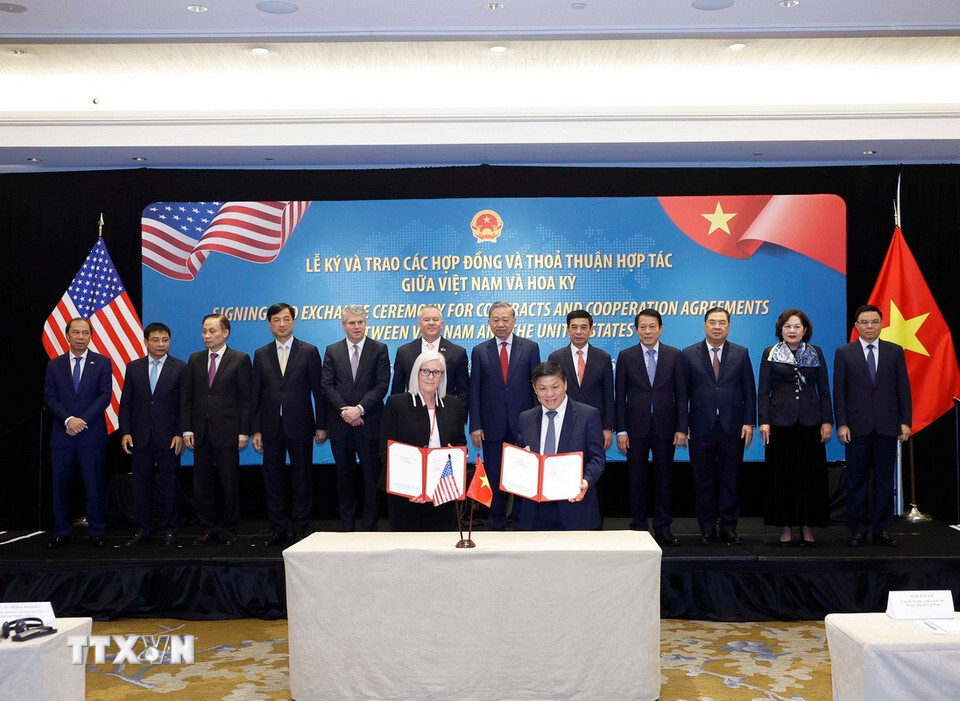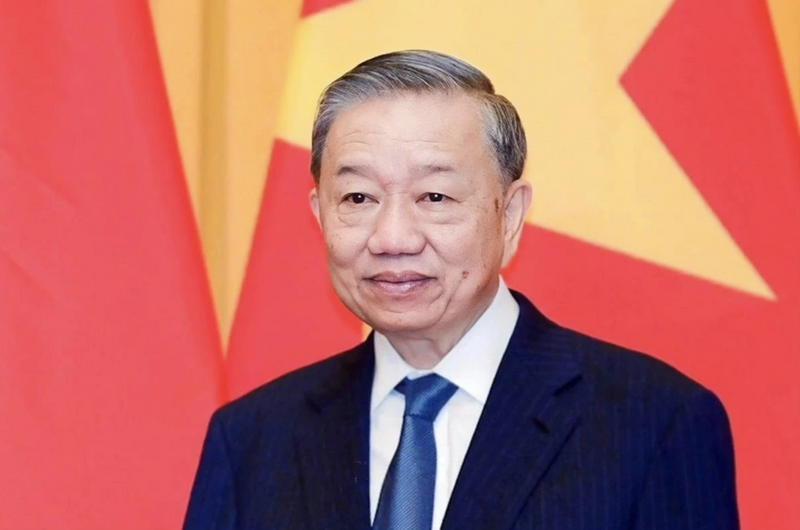
Lunar New Year 2026: Vietnamese travelers choose affordable getaways closer to home
19:05 | 23/03/2025 19:31 | 19/02/2026Tourism
A mechanism for trading emission rights
The carbon market is emerging as a vital instrument to help Vietnam fulfill its commitment to achieve net-zero emissions by 2050. Its establishment not only enables effective control of greenhouse gas emissions but also opens up new financial opportunities through the trading of carbon credits.

The Department of Climate Change, in cooperation with UNOPS, has organized a series of training courses for major emitters in preparation for the pilot operation of the carbon credit trading floor at the end of 2025.
Associate Professor Dr Nguyen Quang Thao, Vice President of the Vietnam Union of Science and Technology Associations, emphasized that the carbon credit market is both a tool to reduce emissions and an economic mechanism that encourages enterprises to adopt new technologies, access green capital and integrate into global value chains.
According to him, the carbon credit market is a decisive instrument to accelerate emissions reduction based on the principle that polluters must pay. This mechanism allows businesses to trade emission rights, creating financial incentives for investment in clean technologies and energy efficiency. Many countries have successfully implemented such systems, achieving significant emissions cuts while enhancing competitiveness.
With Vietnam’s strong potential in renewable energy, agriculture and waste management, the creation of a carbon credit market offers an important opportunity to meet international commitments while strengthening sustainable development in the long run.
Sharing his views, Associate Professor Dr Hoang Van Phu, Chairman of the Scientific Council at the Institute of Economics and Development, noted that in essence, the carbon credit market is an economic mechanism that enables organizations and enterprises to buy and sell greenhouse gas emission rights, particularly for CO2.
He stressed that this mechanism not only creates financial incentives for emissions reduction but also ensures efficient resource allocation across the economy. In recent years, as Vietnam works to honor its pledges made at COP26 and move towards a low-carbon economy, the country has taken important steps to build a legal framework for the carbon credit market.
Three key legal documents have been established: the 2020 Law on Environmental Protection, which officially recognizes the existence and role of the carbon market within the national environmental management system; Government Decree No. 06/2022/ND-CP, which serves as the main regulatory instrument setting out principles, methodologies and mandatory emissions reduction mechanisms; and most recently, Decision No. 232/QD-TTg dated January 24, 2025, approving the scheme for developing the domestic carbon market for 2025–2028. This decision demonstrates the Government’s strong determination to make Vietnam a proactive, integrated and competitive participant in the global carbon market.
These regulations are laying the foundation for a strategic and comprehensive policy framework, enabling Vietnam not only to respond effectively to climate change but also to build a transparent, green and sustainable economy in an era of national transformation. Alongside this process, key industries such as energy, steel, cement, agro-processing and transport are gradually engaging in greenhouse gas measurement, reporting and verification mechanisms. Many pioneering enterprises have actively invested in clean technologies, improved energy efficiency and sought opportunities to trade carbon credits both regionally and globally.
The need to finalize the operating mechanism of the carbon credit market
However, since Vietnam’s carbon credit market remains in its early stages, Associate Professor Dr Hoang Van Phu cautioned that delays in finalizing mechanisms and policies could hinder Vietnam’s entry into the global carbon market, reducing the country’s competitiveness.
He also pointed out major challenges, including an incomplete policy framework, underdeveloped technical infrastructure and emission monitoring systems, and limited capacities of enterprises, particularly small and medium-sized firms, in adopting emission-reducing technologies and participating in the market. Human resources for management, assessment and emissions inventory also remain insufficient in both quantity and quality.

The sessions took place in a professional yet engaging atmosphere, encouraging active participation from businesses.
Most critically, coordination among ministries, sectors and localities in managing and developing the carbon credit market is still fragmented, lacking strong linkages among stakeholders, he added.
These shortcomings explain why Vietnam has yet to establish a fully functional carbon market despite its considerable potential, especially in renewable energy, agriculture and waste management.
For this reason, finalizing the mechanisms for operating the carbon credit market is essential. Doing so will not only help accelerate green growth but also foster energy transition and circular economy development in Vietnam.

19:05 | 23/03/2025 19:31 | 19/02/2026Tourism

19:05 | 23/03/2025 19:19 | 19/02/2026News and Events

19:05 | 23/03/2025 11:07 | 19/02/2026News and Events

19:05 | 23/03/2025 11:05 | 19/02/2026Trade

19:05 | 23/03/2025 14:58 | 17/02/2026News and Events